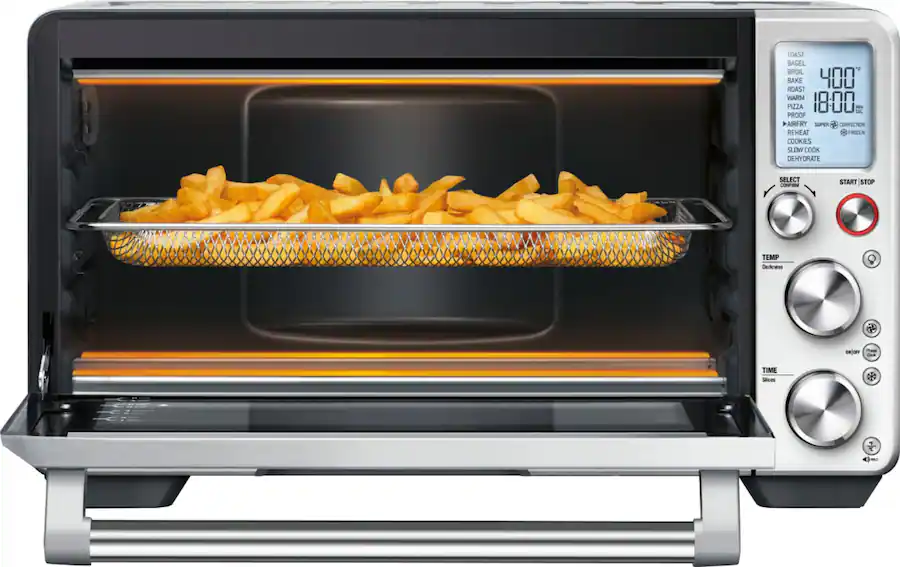Hey there, fellow toast enthusiast! Ever found yourself in that quiet morning moment, staring at your trusty toaster, and wondering about its simplest, most fundamental part? We all know what to do with that handle on the side, but What Is The Purpose Of The Lever, really? It goes down, the bread disappears, and a few minutes later, magic happens. But if you think its job ends there, you’re in for a treat. As the Senior Product Expert here at Toaster World, I’m here to pull back the curtain on this unsung hero of the kitchen.
That humble lever is more than just a plunger; it’s the conductor of the entire toasting orchestra. It’s the ignition switch, the safety release, and sometimes, even your best friend in preventing burnt fingers. So, grab a coffee, and let’s dive deep into the fascinating world of the toaster lever.
The Simple Answer: More Than Just a Handle
At its most basic level, the purpose of the lever is to lower your bread into the toasting chamber and, crucially, to kickstart the heating process. Think of it as the “Go” button. When you press that lever down, two critical things happen simultaneously:
- Mechanical Action: A carriage mechanism holding your bread slices descends into the toaster’s body, positioning them perfectly between the heating elements.
- Electrical Activation: The lever’s movement completes an electrical circuit. This is the key part! It engages an electromagnet that holds the carriage down against a spring and, at the same time, sends power to the nichrome wire heating elements that get red-hot and toast your bread.
Without that lever, your toaster is just a shiny box. It’s the physical interface between you and the toasting cycle.

A Quick Trip in the Toaster Time Machine
To truly appreciate the lever, you have to look back at what came before. The very first electric toasters were, let’s say, a bit rustic. They were often little more than exposed heating coils on a stand. You’d place a slice of bread against it, wait, and then manually flip it to toast the other side. There was no pop-up, no timer, and certainly no lever.
The game changed in 1919 when Charles Strite invented the first automatic pop-up toaster. The core of his invention was a clockwork timer and a spring-loaded mechanism. And how did you start it? You guessed it—with a lever. Pushing the lever down wound the spring and started the timer. When the time was up, the power cut off, and the spring launched the toast upwards. The lever wasn’t just a feature; it was the entire foundation of modern, convenient toasting.
“The lever transformed the toaster from a simple heating device into a true automated appliance. It introduced a ‘set it and forget it’ convenience that we now take for granted, making the perfect toast accessible to everyone.” – Dr. Alistair Finch, Kitchen Appliance Historian
What is the Purpose of the Lever on Modern Toasters?
Okay, so we know it starts the process. But on the sophisticated toasters lining shelves today, the lever has evolved to take on several more jobs. It’s a multi-talented performer in the breakfast show.
The Primary Plunge: Starting the Toasting Cycle
This is its classic role. You press it down, and it locks into place, held by that electromagnet I mentioned earlier. This starts the flow of electricity to a timer circuit (whether it’s a simple bimetallic strip or a fancy digital one). Once the timer determines the toast is done, it cuts the power to the electromagnet, releasing the spring-loaded carriage, and pop! Your toast is served.
The ‘High-Lift’ Feature: Say Goodbye to Burnt Fingers
Have you ever tried to fish out a smaller piece of bread, like an English muffin or a crumpet, from a hot toaster? It’s a dangerous game of “Operation” with a fork (which you should never do, by the way!). This is where the “high-lift” lever comes in.
After the toast has popped up, most modern levers can be lifted an extra inch or so upwards. This raises the carriage higher, bringing smaller items well clear of the hot slots. It’s a simple, brilliant feature that adds a huge amount of convenience and safety. This is one of those small details that separate a good toaster from a great one.
The Manual Override: Your Toast, Your Rules
Sometimes, you just want to check on things. Or maybe you smell that faint, terrifying scent of burning. The lever is also your emergency stop button. You don’t have to wait for the cycle to finish; you can simply lift the lever manually at any time. This will break the circuit, disengage the electromagnet, and pop your toast up immediately. It gives you complete control over the final result, ensuring you get the exact shade you want.
Why Won’t My Toaster Lever Stay Down?
This is one of the most common questions we get, and it’s incredibly frustrating when it happens. You push the lever down, and it just pops right back up. So, what’s the deal?
The most likely culprit is that your toaster isn’t plugged in or the outlet isn’t working. Remember that electromagnet? It needs power to engage and hold the lever down. No power, no grip.
If you’ve confirmed it’s plugged into a working outlet, here are a few other common reasons:
- A Crumb Overload: A buildup of crumbs can sometimes interfere with the locking mechanism at the bottom. A good cleaning can often solve the problem. You can learn more about how to clean your toaster properly right here.
- The Thermostat or Solenoid is Faulty: The internal components that control the electromagnet can fail over time. If this is the case, it might be time to look into a replacement.
- The Latching Mechanism is Damaged: The physical latch that the electromagnet holds onto might be bent or broken, preventing it from catching.
A Lever for Every Lifestyle
As you can see, the lever is far from a one-trick pony. Its evolution reflects the evolution of the toaster itself—from a basic heater to a smart, user-friendly appliance. When you’re shopping for a new toaster, pay attention to how the lever feels. Is it sturdy? Does it have a high-lift feature? The quality of this simple component often speaks volumes about the overall build quality of the appliance. Whether you’re looking at a sleek 2-slice model or one of our guide to the best 4-slice toasters, the lever remains a critical touchpoint.
Frequently Asked Questions (FAQ)
Q: What is the “lift and look” feature on some toasters?
A: The “lift and look” feature allows you to manually lift the lever to check the browning progress of your toast without interrupting the toasting cycle. When you let go, the carriage drops back down and continues toasting. It’s a fantastic feature for toast perfectionists.
Q: Can I fix a broken toaster lever myself?
A: For simple issues like a crumb obstruction, yes. However, if the issue is electrical (like a faulty solenoid) or a broken internal part, we strongly advise against a DIY repair unless you have experience with electronics. For safety reasons, it’s often better to consult a professional or consider a replacement.
Q: Why does my toaster lever feel stiff or sticky?
A: A stiff lever is often caused by a buildup of crumbs or grease in the carriage mechanism. Unplug the toaster, turn it upside down and gently shake out any loose debris from the crumb tray and slots. If it’s still sticky, the internal lubrication may have worn down over time.
Q: Does the lever control the browning setting?
A: No, the lever’s primary purpose is to start and stop the toasting process. The browning level is controlled by a separate dial or button that adjusts the length of the timer. You can explore more about understanding browning settings on our blog.
Q: Is there a difference between a manual and an automatic lever?
A: Most toasters have a manual lever that you press down. However, some high-end models have motorized levers. On these, you simply press a button, and a motor smoothly lowers the bread for you. The core purpose, however, remains the same: to begin the toasting cycle.
The Final Word on The Lever
So, there you have it. The next time you push down that familiar lever, take a moment to appreciate the clever engineering packed into that simple motion. It’s a switch, a timer-starter, a safety catch, and a helping hand, all rolled into one. It’s the small, tactile connection to a process that brings so much simple joy to our mornings. Understanding what is the purpose of the lever is understanding the very heart of the toaster. It’s proof that sometimes, the most important jobs are handled by the simplest-looking parts.
